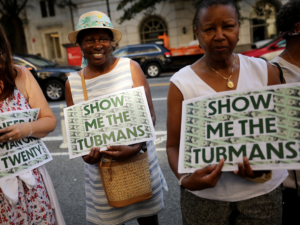A reading list on fatherhood and the memories that stick
By Clint Smith
This is an edition of Time-Travel Thursdays, a journey through The Atlantic’s archives to contextualize the present and surface delightful treasures. Sign up here.
Father’s Day looks different for each family. For some, it is a moment to celebrate the dad(s) in your life and let them know how much you appreciate them. Maybe it’s with a homemade card, or pancakes, or an afternoon in which a dad is allowed to take a nap and watch replays of the 1998 NBA finals uninterrupted. But the day can also be steeped in mourning, as the loss of a father, or father figure, is felt more acutely and the memories of that person can come bubbling to the surface.
In The Atlantic’s archives, you can see these themes playing out across time. I found myself deeply moved by the connections between a March 1950 essay by Virginia Woolf about her father, Leslie Stephen, and a January 2024 essay by my colleague Ross Andersen, about his father, Erik Dybkaer Andersen.
Both essays are posthumous meditations on who their fathers were, providing insights into how these men made their way in the world through the eyes of their children. Woolf remembered how her father “would twist a sheet of paper beneath a pair of scissors and out would drop an elephant, a stag, or a monkey with trunks, horns, and tails delicately and exactly formed,” and how he would take a pencil and “draw beast after beast — an art that he practised almost unconsciously as he read, so that the fly-leaves of his books swarm with owls and donkeys.”
Never miss a story. Start your subscription.
Uncompromising quality. Enduring impact.
Your support ensures a bright future for independent journalism.Get Started
Already have an account? Sign in




